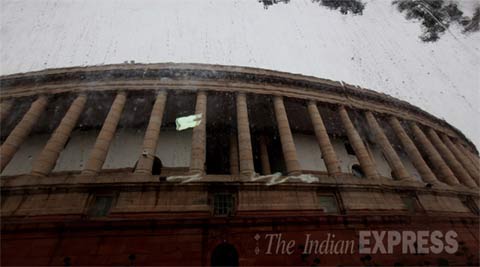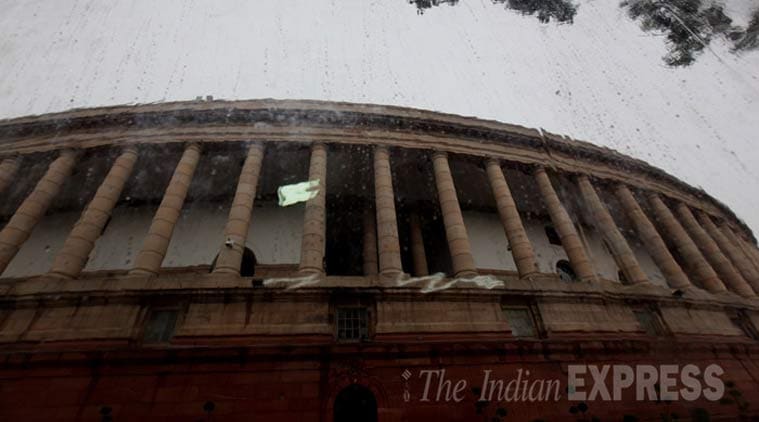Opinion Winter is coming
In Parliament, both sides have raised the pitch, making it harder for them to climb down

 Wednesday’s debate was expected to prepare the ground for a conversation between the government and the Opposition. (Source: Express photo)
Wednesday’s debate was expected to prepare the ground for a conversation between the government and the Opposition. (Source: Express photo)
The Parliament debate on the Lalit Modi issue was full of sound and fury, and nothing more. It didn’t help clear the cloud over the government’s alleged helping hand to the controversial cricket administrator, or narrow the chasm between the treasury and opposition benches. The bitterness between the Congress and the BJP persists, and in the absence of a thaw in relations between the two parties, the winter session too could be a washout.
Wednesday’s debate was expected to prepare the ground for a conversation between the government and the Opposition. The Congress had climbed down from its maximalist position that it would let the House function only after the BJP ministers quit, to agree to a debate on the Lalit Modi issue. The charge that External Affairs Minister Sushma Swaraj had violated the propriety of her office was damning enough to call for her resignation. The government disagreed and claimed that the minister’s intervention was only a humanitarian gesture, without any profit motive or quid pro quo. However, when Parliament debated the matter on Wednesday, the speakers
ignored the charges of procedural violations and impropriety in the minister’s action to focus on the Gandhi family.
The commissions and omissions of the Rajiv Gandhi government of the 1980s were no doubt serious, but did not the voters make the Congress pay for it? Swaraj could have held a private history lesson for Rahul Gandhi on Bhopal and Bofors, if that was her focus, and spared Parliament. A precise and pointed explanation of what she did is what Swaraj, a seasoned parliamentarian with a blemishless record in a long public life — as she herself claimed — ought to have offered the House.
Her speech did not amount to the defence demanded of her. Worse, by personalising the debate, Swaraj may have made it tougher for the BJP’s floor managers to reach out to the Opposition.
A conspicuous absence in Parliament during the Lalit Modi debate — the first serious day of business in the monsoon session — was that of Prime Minister Narendra Modi. Since the issue had dogged the government for long and paralysed Parliament, a statement was expected of the prime minister. What explains his indifference to the debate?
Was this a way of disassociating himself from his minister’s conduct? In the past, prime ministers took extra care to attend the House when important matters came up for discussion or when senior Opposition leaders spoke. It was also a gesture of respect to Parliament itself. It is not merely a space to conduct legislative business, as a group of industrialists have reminded the MPs in an online petition, but also a sacred institution to debate the ethics of politics and governance.


